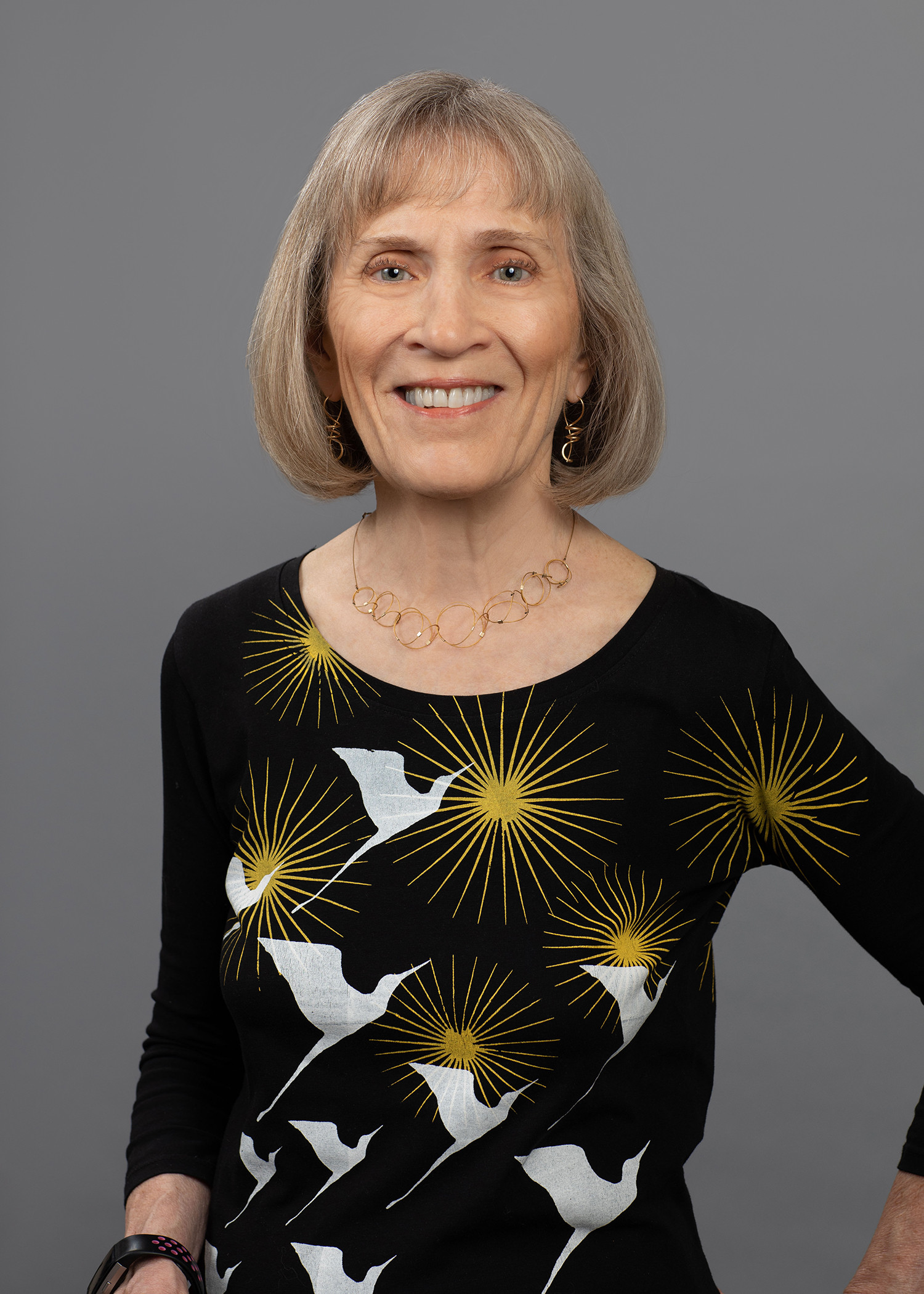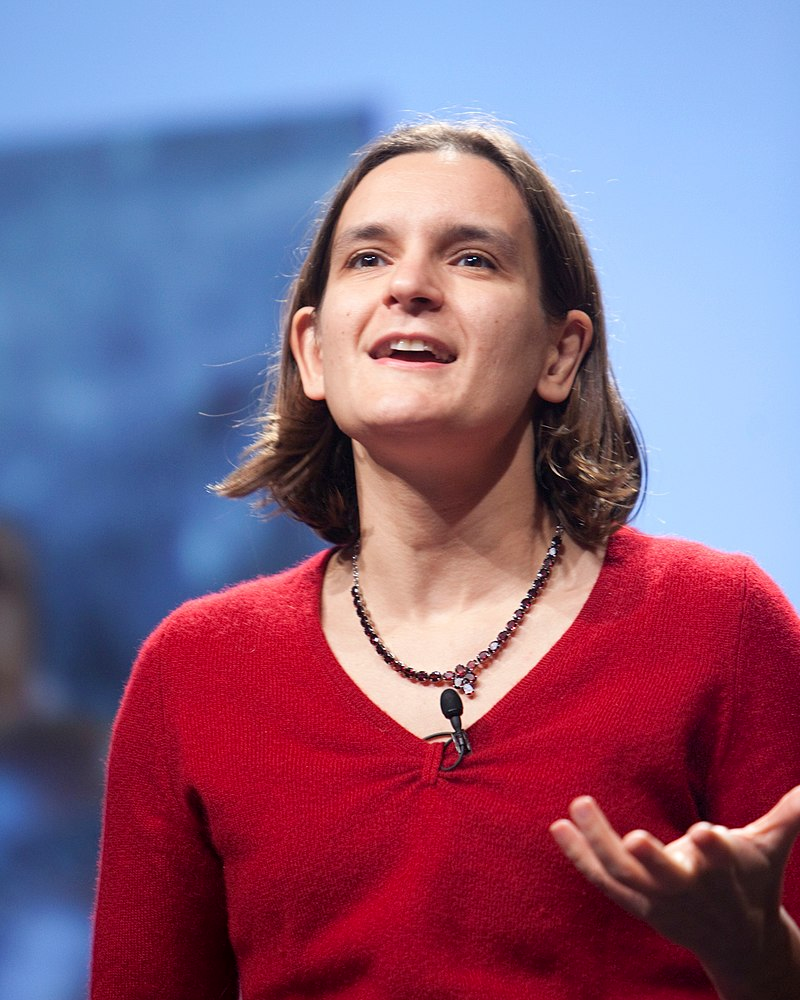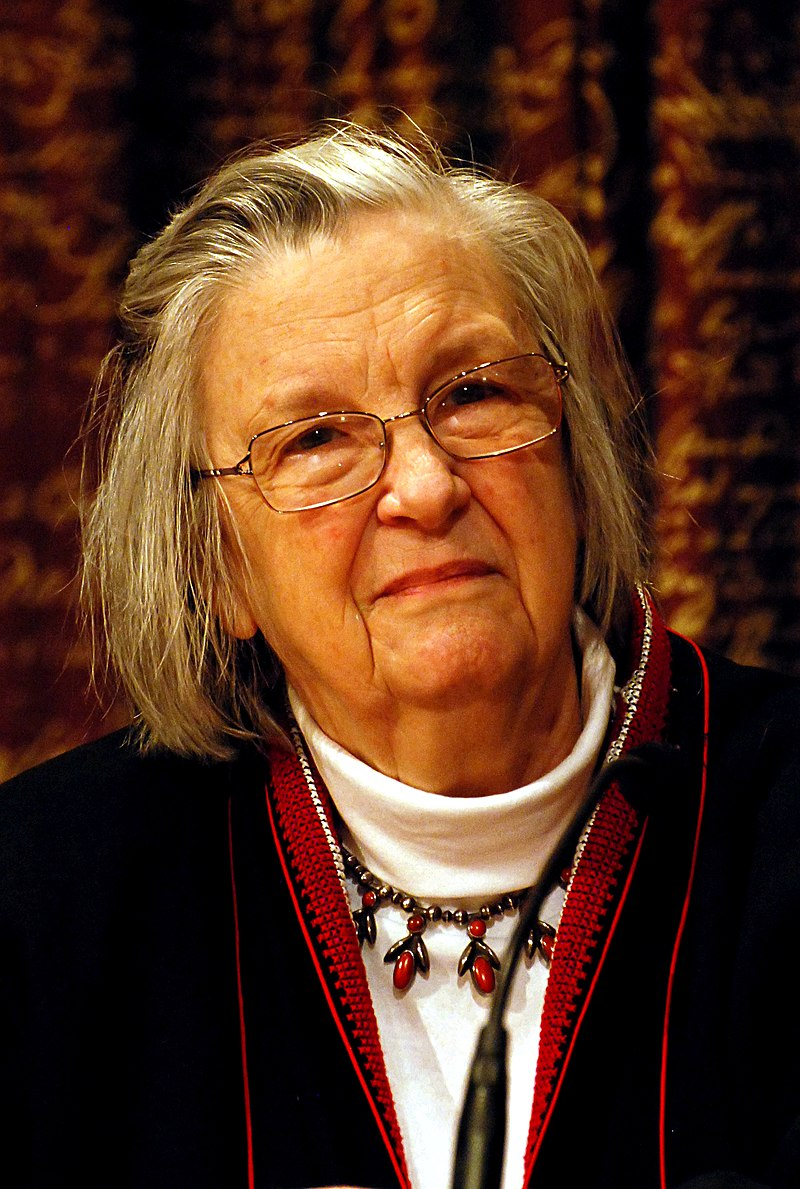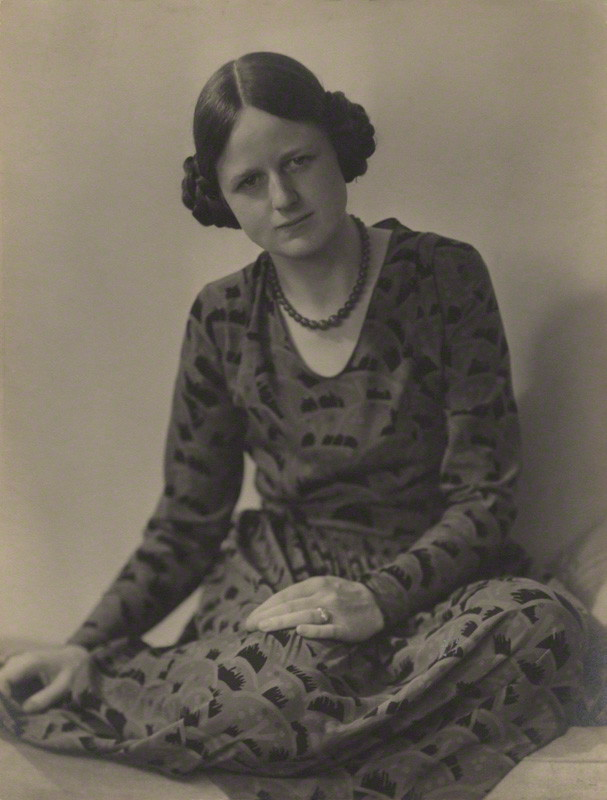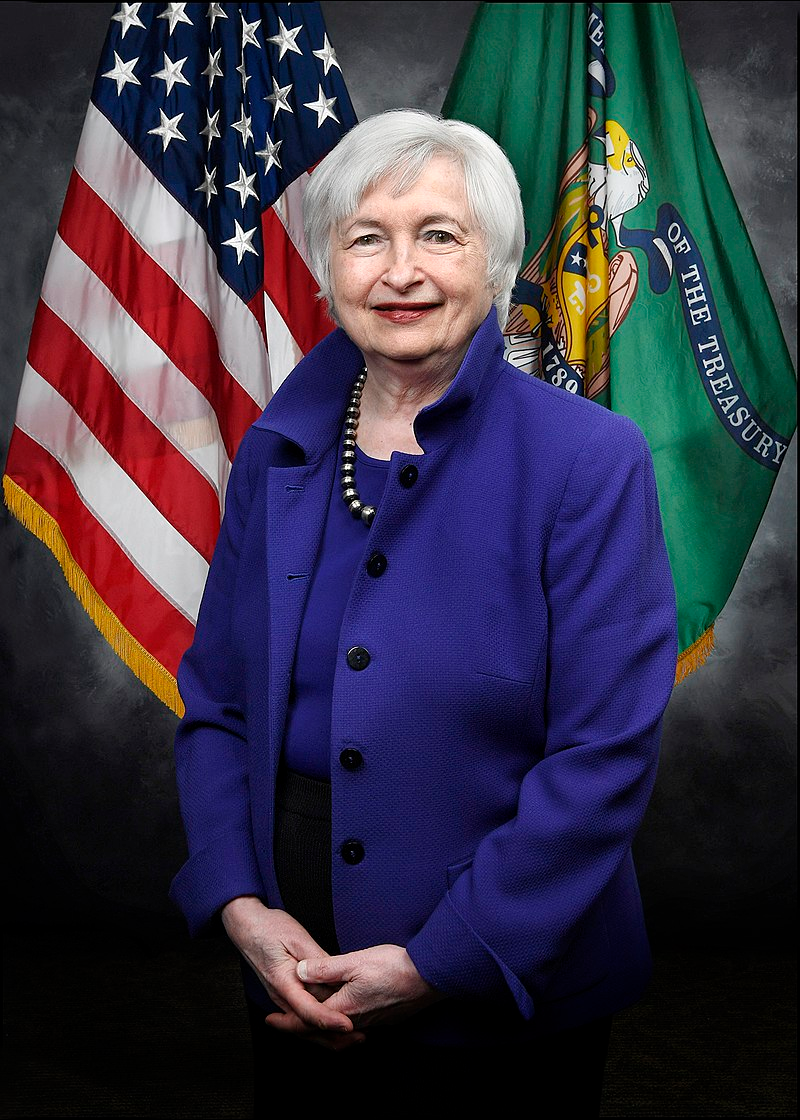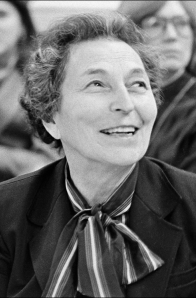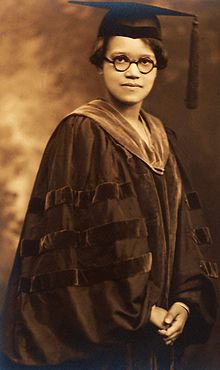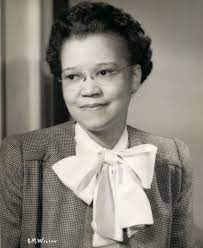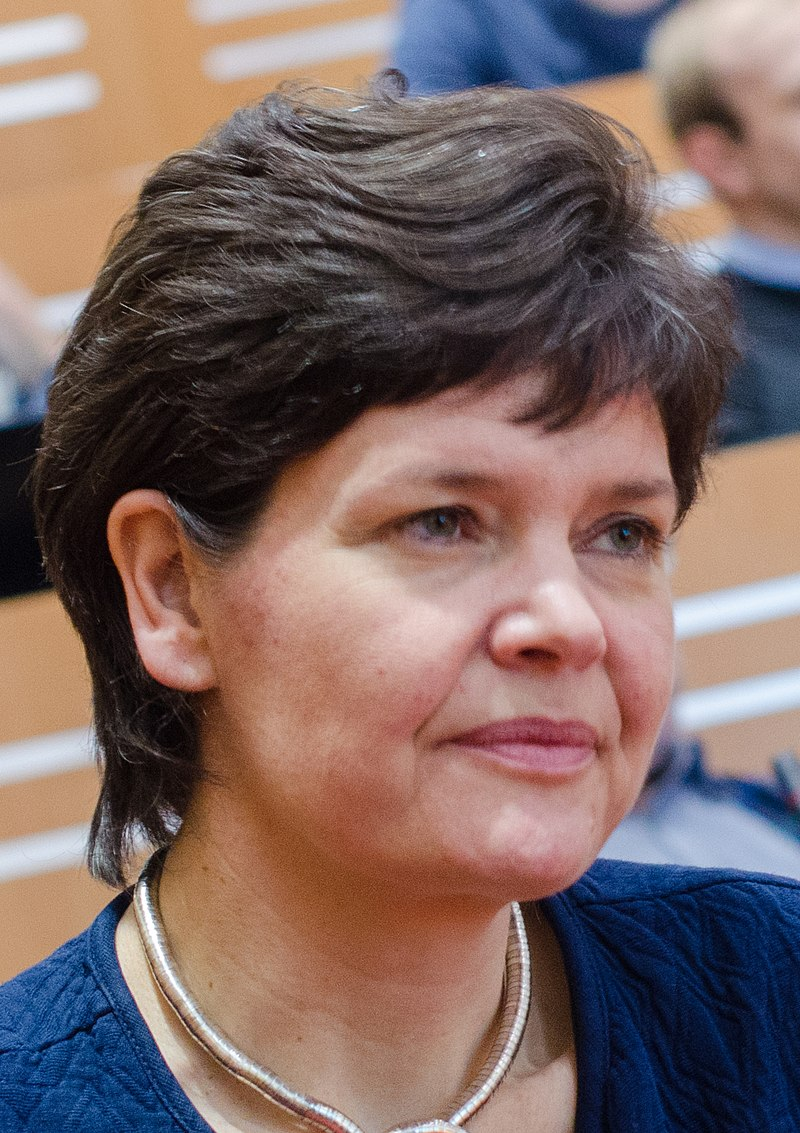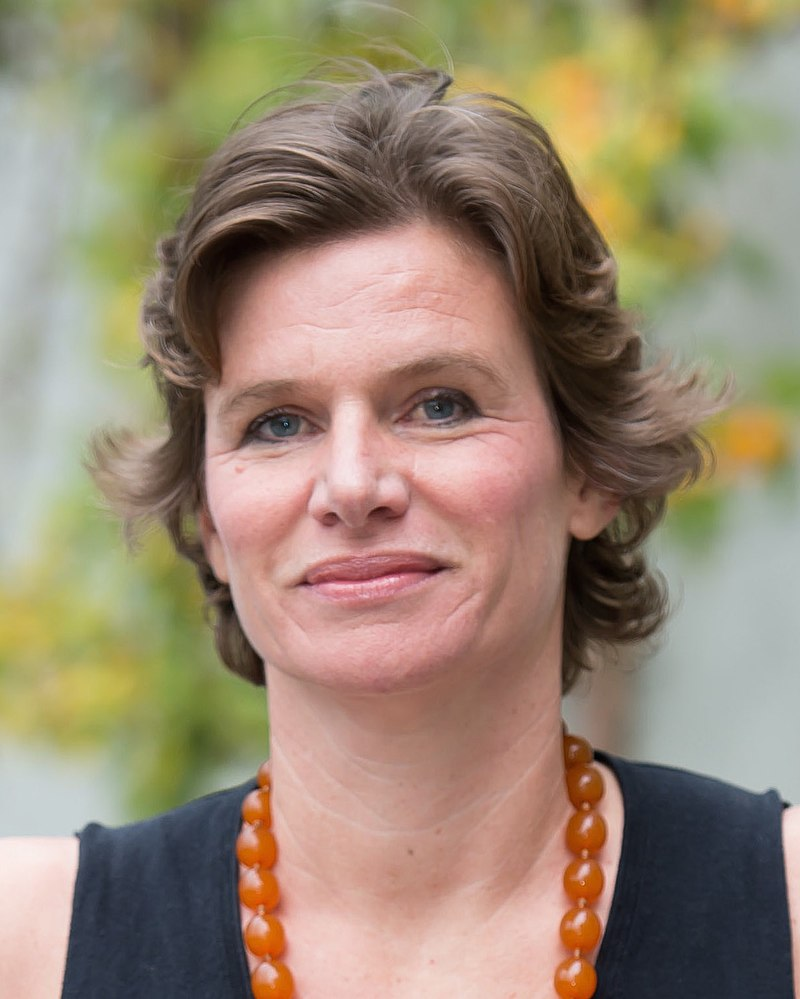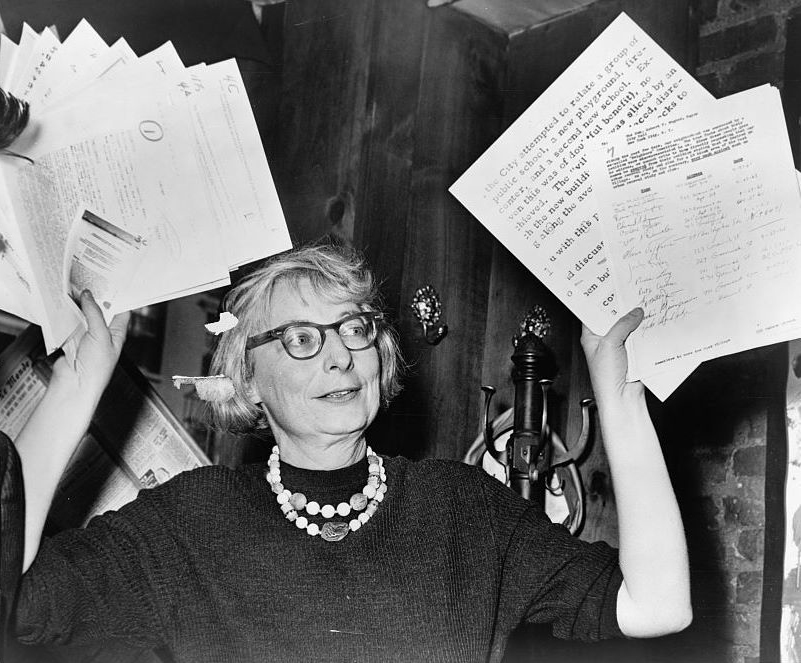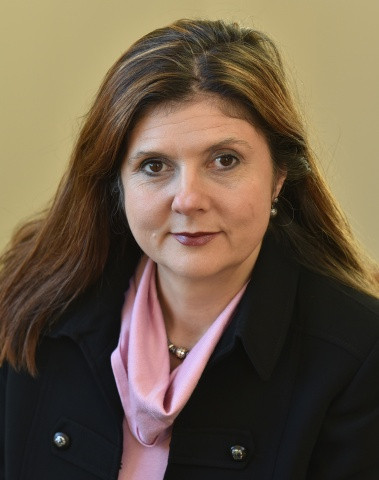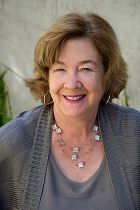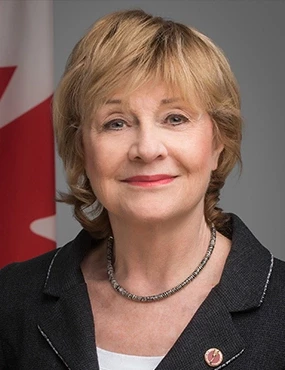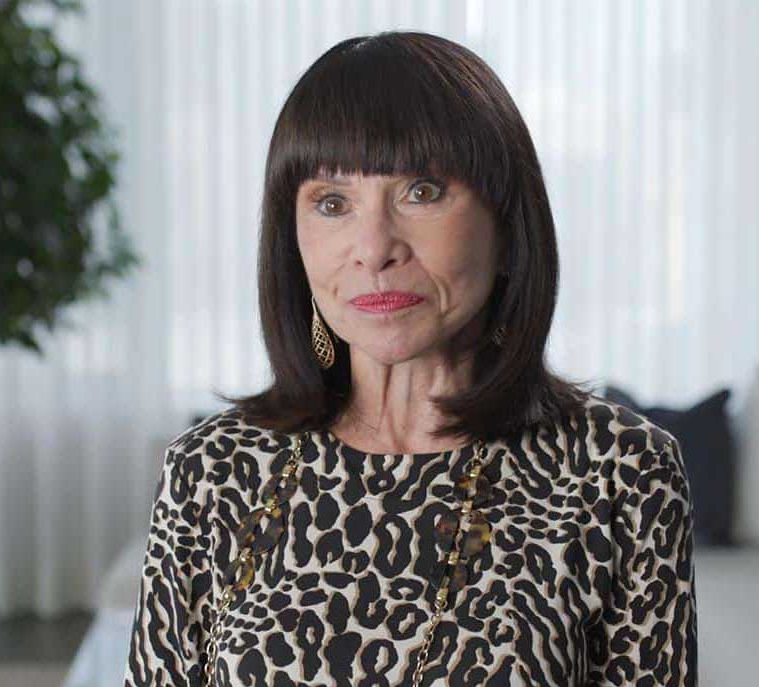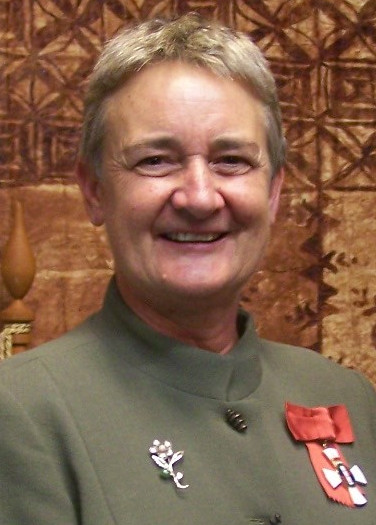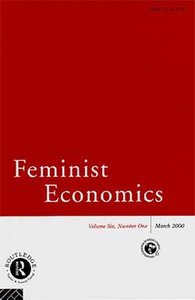Women in Economics
Why Should I Care?
Women have made important contributions to the field of Economics which may go unnoticed in a field dominated by men. We encourage you to learn about these wonderful women and their ideas.
This lesson has 4 parts
- Nobel Winners
- Women Economists in the World
- Women Economists in Canada
- Feminist Economics
Who are the Women in Economics?
Most economists happen to be men, as is the case for the author of this manual. This has implications for the discipline of economics, and the focus of research. It is important for students of all backgrounds to feel as though they can contribute to the field, and we would like to inform students of who these women were, and how important their contributions are to economics.
Please consider that not all women economists consider themselves to be feminist economists. Some of the people we present in this section were working on very conservative aspects of economic policy or theory, such as the brilliant Anna Schwartz, who was the co-author on Milton Friedman's famous book, A Monetary History of the United States, 1867-1960. Some women economists fall into a gender analysis almost by accident. Consider Anke Becker, whose mastery of statistical analysis has allowed her to identify the root causes of patriarchy in religious history. Becker's main economic interest is a sub-field called 'econometrics', yet she has stumbled into some fascinating empirical results. Finally there are many women in economics who are acting to research and analyze aspects of economics that pertain to women directly, such as Marilyn Waring, whose famous book If Women Counted formed the foundation of feminist economics.
Women are part of the economy, and their voice is important.
If you are interested in knowing more about women economists, consider this ranking of the top female economists in the world, by number of academic publications: https://ideas.repec.org/top/top.women.html.
You can also check out this list by the IMF blog: https://www.imf.org/en/Blogs/Articles/2021/08/06/women-in-economics.
Here is a podcast of women economists, produced by the US Federal Reserve: https://www.stlouisfed.org/timely-topics/women-in-economics
-
Nobel Winners
There are 61 women holders of a Nobel prize, of which only 3 in economics, which is awarded by the central bank of Sweden and called the Sveriges Riksbank Prize in Economic Sciences in Memory of Alfred Nobel.
Claudia Goldin
Photo credit: Harvard University.
Harvard University economist Claudia Goldin won the 2023 Nobel prize for Economics. She is the first woman to have won the award without a man. Her latest book, Career and Family: Women’s Century-Long Journey toward Equity, was published in 2022 at Princeton University Press. It is the result of her life-long interest in labour economics and women's role in the labour market. Goldin traces women’s journey to close the gender wage gap and sheds new light on the continued struggle to achieve equity between couples at home.
Esther Duflo Banerjee
Photo credit: Kris Krug, https://en.wikipedia.org/wiki/Esther_Duflo#/media/File:Esther_Duflo_-_Pop!Tech_2009_-_001_(cropped).jpg
French economist Esther Duflo teaches at the Massachusetts Institute of Technology, and won the Nobel award in 2019 for her work in experimental approaches to alleviating global poverty. The award was also given to Abhijit Banerjee and Michael Kremer. With her husband Banerjee, she's published many books including Poor Economics: A Radical Rethinking of the Way to Fight Global Poverty, in 2012.
Elinor Ostrom
Photo credit: Holger Motzkau, https://en.wikipedia.org/wiki/Elinor_Ostrom#/media/File:Nobel_Prize_2009-Press_Conference_KVA-30.jpg
Elinor Ostrom is a political scientist who in 2009 became the first-ever woman to receive the prestigious Nobel along with economist Oliver Williamson. She taught at Indiana University. Her research on the 'Commons' is used widely in both political science and economics. It provides fascinating avenues for economic organization outside of traditional state-owned institutions, or privately-held corporations. Among many publications, she published Governing the Commons: The Evolution of Institutions for Collective Action, in 2015, at Cambridge University Press.
-
Women Economists in the World
The following women are presented in no particular order. Their contributions are either original, important, or both.
Joan Robinson
Photo credit:
British economist Joan Robinson was a student of Alfred Marshall and a contemporary of John Maynard Keynes. She was a theoretical economist, whose models were presented in clear mathematical fashion. Robinson was a strong advocate of Keynesian macroeconomic thought, and was an advisor to Keynes' General Theory. Her personal contributions are very important, most notably that of Monopolistic Competition, which is an important analytical tool in micro-economics, but also economic development and innovation. Another contribution was her growth model, which outlaid the foundations of the interaction between capital and labour in growing economies.
Janet Yellen
Photo credit:
Chair of the US Federal Reserve from 2014 to 2018. Yellen is arguably the most powerful woman economist in history. She now serves as the US Secretary of the treasury since 2021, and has overseen the government's response to the COVID-19 pandemic. Yellen is a Yale graduate and has taught at Harvard University, London School of Economics and the University of California, Berkeley.
Anna Schwartz
Photo credit: https://www.womenofthehall.org/inductee/anna-jacobson-schwartz/
New York economist Anna Schwartz obtained her PhD at Columbia University, and quickly entered work at the prestigious National Bureau of Economic Research (NBER). Her mastery of data sets, in an era prior to computers, and her obsession over monetary aggregates brought her to work with Milton Friedman. Together they published A Monetary History of the United States, 1867-1960, which is regarded as one of the most influential books in economics of all time. They demonstrate how the US central bank mismanaged the Great Depression. Their lessons have guided central bank governors of the entire world since, especially in the 2008 financial crisis.
Sadie T. M. Alexander
Photo credit: University of Pennsylvania
First African-American economist to receive a PhD in 1921 from the (University of Pennsylvania.Pennsylvania, 1921). Alexander was kept from a serious positioncareer in the field due to sexism and racism. She decided to pursue law, and passed the Pennsylvania bar in 1927. A recent book republishedrecovered Alexander's economic contributions based on her writings,speeches. and allows us to read her economic contributions. It was edited by Nina Banks, professor of economics at Bucknell University and president of the National Economic Association (2021, Yale University Press). Alexander wrote about Black farmers,workers, the importance of unpaideconomic work in communities,justice, and was the first US economist to advocate for a federal job guarantee.
Kate Raworth
Photo credit: Arbeid & Milieu, https://en.wikipedia.org/wiki/Kate_Raworth#/media/File:Kate_Raworth,_2018_(cropped).jpg
Kate Raworth is famous for publishing the book Doughnut Economics, which provides a new way to visualize environmental and social issues. Her visual representation tools are used by policy analysts at international institutions, governments, and cities across the world. She holds a masters in Development Economics from the University of Oxford and an honorary doctorate from Business School Lausanne.
Marianna Mazzucatto
Photo credit: , https://en.wikipedia.org/wiki/Mariana_Mazzucato#/media/File:Mariana_Mazzucato_2016_(cropped).jpg
Marianna Mazzucatto is specialized in Innovation Economics and issues pertaining to regulation. Her latest book, The Big Con: How the Consulting Industry Weakens our Businesses, Infantilizes our Governments and Warps our Economies, is a scolding condemnation of the consulting industry, namely McKinsey and Co. Mazzucatto is a professor of Economics of Innovation and Public Value at University College London and founding director of the Institute for Innovation and Public Purpose. Mazzucato received a M.A. and a PhD in economics from the New School for Social Research in the US.
Jane Jacobs
Jane Jacobs was an American intellectual and writer with no formal education. Through her books, she made ground-breaking contributions to urban planning, sociology and economics. Her concepts of 'eyes on the street', the importance of traditional neighborhoods, social capital, eco-system analysis, knowledge spillovers, and import-replacing cities through breakaway entrepreneurship, are discussed to this day. Dynamic metropolises are dubbed 'Jacobs' Agglomeration' in her honour. Her work was lauded by many mainstream economists such as Robert Lucas and Edward Glaeser, although mainstream economics has not adopted most of her theory. More recently, her work has been presented to a younger audience by yours truly, and will be the main subject of an upcoming book by SUNY economics professor Sanford Ikeda.
Betsey Stevenson
Photo credit: University of Michigan. https://fordschool.umich.edu/faculty/betsey-stevenson
Focused on labor economics, Betsey Stevenson earned her PhD from Harvard University. She is professor of public policy and economics at the University of Michigan. She is also a faculty research associate at the National Bureau of Economic Research, and associated to universities in Sydney, Munich, and serves on the executive committee of the American Economic Association. From 2013 to 2015 she advised President Obama on social policy, labor market, and trade issues. Prior to this she was chief economist of the U.S. Department of Labor from 2010 to 2011. Dr. Stevenson work explores the relationship between labor markets, women and families. She is a columnist for Bloomberg View, and her analysis of economic data and the economy are frequently covered in both print and television media.
Bronwyn Hughes Hall
Photo credit: UCLA. https://www.econ.berkeley.edu/profile/bronwyn-h-hall
Prolific researcher in the field of Innovation Economics, Bronwyn H. Hall is Emerita Professor at the University of California at Berkeley, a Research Associate of the National Bureau of Economic Research and the Institute for Fiscal Studies, London, and a Visiting Fellow at NIESR, London. She currently serves as an associate editor of the Economics of Innovation and New Technology, and of Industrial and Corporate Change. She is a also a member of several advisory boards (Solvay Brussels School of Economics and Management, European Patent Office, DIW - German Institute for Economic Research). She received a B.A. in physics from Wellesley College in 1966 and a Ph.D. in economics from Stanford University in 1988.
Anke Becker
Photo credit: Harvard. https://www.hbs.edu/faculty/Pages/profile.aspx?facId=1205278
Anke Becker is an Assistant Professor of Economics at Harvard Business School. Her areas of research include economic development, political economy, economics of gender, and behavioral economics. Her recent work examines culture and gender, specifically gender-specific norms and how they help us understand entrepreneurship in developing countries. Ms Becker earned her PhD from the University of Bonn. Her work, which very rigourous in ways of statistics and econometrics, has been useful across many fields. Her controversial studies have linked the historical emergence of herding (shepherd economy) with the emergence of patriarchy and the demise of rights of women.
-
Women Economists in Canada
Here is a short list of influential women economists in Canada. Note there is a Canadian Women Economists Committee (CWEC), as a standing committee of the Canadian Economic Association. The CWEC publishes an annual report on the composition of economics faculty across the country and publishes a seasonal newsletter covering issues such as diversity data, curricula improvements, sexual harassment policies, and gender bias in evaluations.
https://www.economics.ca/cpages/cwec-home
Diane Bellemare
Photo credit: Senate of Canada. https://sencanada.ca/fr/senateurs/bellemare-diane/
Specializing in labour economics, Diane Bellemare is now a member of the Senate in the Parliament of Canada. She was named senator in 2012 by conservative Prime Minister Stephen Harper. She sits as an independent since march 2016, and is affiliated to the Progressive Senate Group.
Ms. Bellemare taught economics at the Université du Québec à Montréal (UQAM) from 1972, to 1994, having obtained her PhD at McGill University (1981). Amongst many appointments, she was named CEO of the Société québécoise de développement de la main-d’œuvre (SQDM), whose mandate was to manage federal and provincial labour training programs. The body was dissolved in 1997, when labour training became an exclusively provincial responsibility. She participated in those negotiations, and then headed the newly created Commission des partenaires du marché du travail, until 1999. Later she will be work as a consultant, with the Fonds de solidarité FTQ, the Quebec chamber of commerce, the Action démocratique du Québec (ADQ) political party, and the CIRANO research center.
Sherry Cooper
Photo credit: https://sherrycooper.com/biography/
American born economist, Sherry Cooper was a well-known economic commentator in the 1990's and 2000's. Sherry Cooper served as Chief Economist and Executive Vice-President of BMO Financial Group. Sherry Cooper has published several books, and holds an MA and PhD in Economics from the University of Pittsburgh. She began her career at the US Federal Reserve under then-Chairman Paul Volcker. Dr. Cooper founded Dominion Lending Centres with her partner, Peter Cooper, after an unsuccessful attempt to become the CEO of a large Canadian bank.
Margaret Emily Slade
Professor emeritus in the Vancouver School of Economics at The University of British Columbia. Her research is concerned with Industrial Organization, both horizontal and vertical integration of industries. Slade earned her PhD from George Washington University in the US.
Ruth Rose
Retired from Université du Québec à Montréal, Ruth Rose worked closely with women's rights organizations in Quebec for more than three decades.
Nicole M. Fortin
Professor in the Vancouver School of Economics (VSE) at University of British Columbia, where she obtained her PhD. in Economics.
Emanuela Cardia
Emanuela Cardia studied at the London School of Economics and earned a PhD at the University of California, Berkeley. She teaches macroeconomics at Université de Montréal.
Margarida Duarte
Professor of Economics at the University of Toronto. Her main fields of study are Macroeconomics, International Finance, and Economic Growth and Development. Duarte also worked as an economist at the Federal Reserve Bank of Richmond. She received her PhD in Economics from the University of Rochester in 2001.
Nora Traum
Professor of Macroeconomics. Monetary Policy and Fiscal Policy, at HEC Montréal, Traum earned her PhD from Indiana University.
Silvia Goncalves
Specialized in econometrics, Goncalves teaches at McGill University. She earned a PhD from University of California, San Diego.
-
Feminist Economics
The economists listed on this page have contributed to the discipline from a wide array of view points. Some of them are right-wing conservatives, such as Sherry Cooper and Anna Schwartz. Some of them are middle-of-the spectrum centrists, such as Jane Jacobs, Marianna Mazzucatto, and Janet Yellen. Others are firmly set on the left-wing, such as Esther Duflo, Elinor Ostrom, and Ruth Rose.
Still others are associated to a particular school of thought. This is the case of Joan Robinson, a well-known Keynesian, and Kate Raworth, in the camp of ecological economics. These economists may or may not be considered Feminist economists, depending on who you ask.
So what is Feminist Economics?
Feminist economic research focuses on topics that are neglected by other economists, who, let's be honest, are mostly men. These topics are wide-ranging, including the importance of care work, intimate partner violence, or the incorporation of gender-effects in economic modelling. Issues related to methodology are also discussed, such as non-monetized work, or the capabilities approach in the labour market. The main objective of feminist economics is to better understand the economy as to improve the well-being of everyone: children, women, and men, in local economies, or larger communities.
https://en.wikipedia.org/wiki/Feminist_economics
Who are the feminist economists?
Among the best-known contributors to Feminist economics: Marilyn Waring, Ester Boserup, Marianne Ferber, Drucilla K. Barker, Julie A. Nelson, Nancy Folbre, Diane Elson, Barbara Bergmann and Ailsa McKay.
Marilyn Waring
Marilyn Waring is the author of the 1988 book If Women Counted, which is generally regarded as the seminal "founding document" of the discipline. She was an elected politician in New Zealand where she later taught political science at the University of Waikato. Her work was critical of the use of GDP in international data comparisons and its oversight of women's unpaid work. Waring sat on many boards including the Reserve Bank of New Zealand, the Commonwealth Secretariat, the Secretariat of the Pacific Community, the United Nations Development Programme, the Regional Assistance Mission to Solomon Islands, the International Development Research Centre (Ottawa, Canada) and the Association for Women's Rights in Development.
Contributions to feminist economics can be made to many publications, however they have a home base in the journal Feminist Economics, which is published by the International Association for Feminist Economics (IAFFE). Elissa Braunstein is Professor and Chair of Economics at Colorado State University, as well as Editor of Feminist Economics.
https://www.feministeconomics.net/
References and Further Reading
Alexander, S. T. M. (2021). Democracy, Race, and Justice, The Speeches and Writings of Sadie T. M. Alexander. Banks, N. (Ed.). Yale University Press.
Aligica, P. D. & Boettke, P. J. (2009). Challenging Institutional Analysis and Development: The Bloomington School 1st Edition. Routledge. https://www.routledge.com/Challenging-Institutional-Analysis-and-Development-The-Bloomington-School/Aligica-Boettke/p/book/9780415778213
Banerjee, A. & Duflo, E. (2012). Poor Economics: A Radical Rethinking of the Way to Fight Global Poverty. PublicAffairs. https://www.hachettebookgroup.com/titles/abhijit-v-banerjee/poor-economics/9781610391603/?lens=publicaffairs
Friedman, M. & Schwartz, A. J. (1971). A Monetary History of the United States, 1867-1960.
Ramsay, C.-A. (2022). Cities Matter, A Montrealer's Ode to Jane Jacobs, Economist. Baraka Books. https://www.barakabooks.com/catalogue/cities-matter/
Rochon, O. (2019). Ruth Rose, économiste au féminin. Revue vie économique, vol. 1, n. 4. https://iref.uqam.ca/wp-content/uploads/sites/56/2019/07/Hommage_Ruth_Rose.pdf
Waring, M. (1988). If Women Counted, A New Feminist Economics. Harper & Row.

